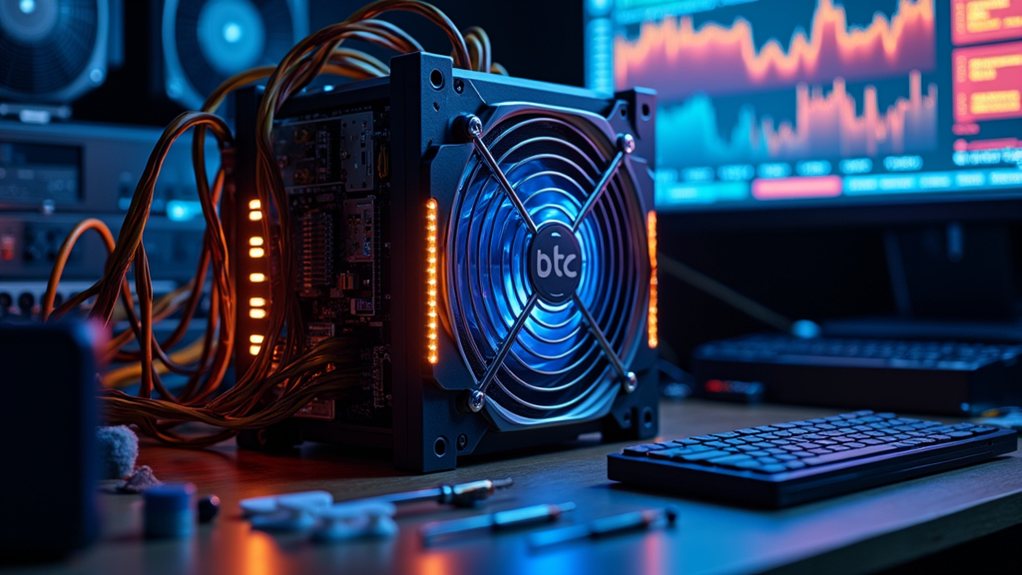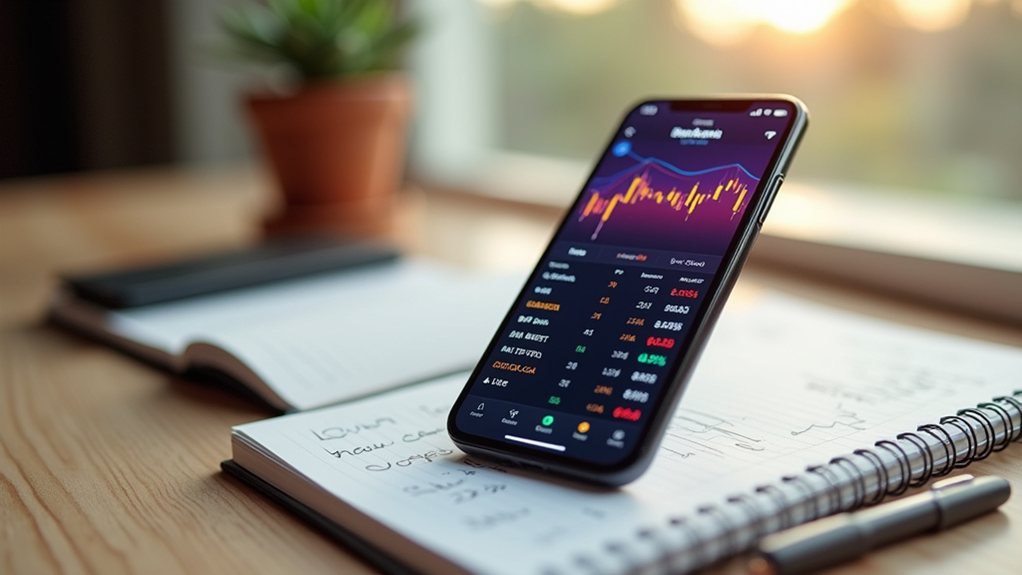Ethereum is a revolutionary blockchain platform that goes beyond cryptocurrency. Founded in 2015 by crucial Buterin, it powers smart contracts—self-executing agreements without middlemen. Users create a wallet like MetaMask, buy ETH, and can participate in DeFi, NFTs, or DAOs. Gas fees apply, especially during high traffic. Yeah, it's volatile and faces competition, but Ethereum 2.0 promises better scalability. The crypto rabbit hole gets deeper from here.

What exactly is this blockchain thing everyone's talking about? If you've been anywhere near tech news lately, you've probably heard of Ethereum. It's the second-largest cryptocurrency after Bitcoin, but it's so much more than just digital money. Founded in 2015 by crucial Buterin, Ethereum is a decentralized platform that runs on a blockchain, allowing developers to build and deploy smart contracts and decentralized applications (dApps). Think of it as a global computer that nobody owns but everyone can use. Revolutionary stuff, really.
Ethereum: not just crypto—it's a decentralized digital universe where code is law and innovation knows no bounds.
Ethereum uses its native cryptocurrency, Ether (ETH), to power transactions on its network. But unlike Bitcoin, which primarily functions as digital money, Ethereum lets you program it. Smart contracts are its killer feature – self-executing agreements with the terms written directly into code. No intermediaries needed. They run exactly as programmed without possibility of downtime, censorship, or third-party interference. Pretty neat, right?
The whole system runs on something called the Ethereum Virtual Machine (EVM), which is basically the engine that processes and executes all the smart contract code. In 2022, Ethereum made a massive change to its consensus mechanism, switching from energy-intensive Proof-of-Work to more environmentally friendly Proof-of-Stake. Less power consumption, same functionality. Win-win.
Ethereum isn't just theoretical tech babble. It powers real-world applications today. DeFi (Decentralized Finance) lets people lend, borrow, and trade without banks. NFTs (those expensive digital pictures you've heard about) run mostly on Ethereum. DAOs govern organizations through code instead of CEOs. Supply chains track products. Identity systems verify people. Ethereum has gained impressive corporate adoption from major companies like Microsoft, Intel, and JPMorgan Chase. The applications keep growing. With over 4,000 dApps currently running on its system, Ethereum has demonstrated its growing importance in the blockchain ecosystem.
Getting started with Ethereum isn't rocket science. Create a wallet like MetaMask. Buy some ETH from an exchange. Boom – you're in the game. Just be aware of gas fees – the costs for doing anything on the network. They can get ridiculously high when the network gets congested. The cryptographic linking of data blocks ensures that transactions on Ethereum remain secure and tamper-resistant.
Of course, it's not all sunshine and rainbows. ETH prices swing wildly. Smart contracts can have bugs that cost millions. Regulations loom uncertain in many countries. And competitors are coming for Ethereum's lunch every day.
The future? Ethereum continues developing its 2.0 upgrade with sharding to improve scalability. More companies and even governments are exploring its potential. DeFi and NFTs keep expanding. Real-world assets are being tokenized. Whether Ethereum maintains its dominant position remains to be seen, but its impact on blockchain technology is undeniable. It's changed the game forever.
Frequently Asked Questions
How Does Ethereum's Energy Consumption Compare to Bitcoin's?
Ethereum's energy usage is minuscule compared to Bitcoin's. Period.
After "The Merge" in 2022, Ethereum slashed its consumption by 99.95%, now using just 0.01 TWh annually.
Bitcoin? A whopping 110-150 TWh—comparable to entire countries.
Per transaction, Ethereum uses about 0.03 kWh while Bitcoin gobbles up 1,200 kWh.
The difference is staggering.
Ethereum went green. Bitcoin's still burning through electricity like there's no tomorrow.
Can I Mine Ethereum With a Regular Home Computer?
Mining Ethereum at home? Technically possible, brutally impractical.
Regular computers lack the GPU power needed for profitable mining. The numbers just don't add up. You'd need at least 6GB VRAM, preferably more, plus tolerance for skyrocketing electricity bills.
And the timing? Awful. Ethereum's shift to Proof of Stake means GPU mining's days are numbered. Home miners compete against warehouse operations. Good luck with that.
What Happens to My ETH During a Network Upgrade?
During network upgrades, ETH stays put. No action needed. Zero. Zilch.
Funds remain in wallets while changes happen at the protocol level. Transactions might slow down temporarily. Exchanges occasionally pause deposits. Some dApps go offline briefly.
But here's what never happens: legitimate upgrades don't require sending ETH anywhere.
Anyone asking for coins during "upgrades" is scamming. Pretty straightforward, really.
How Do Smart Contract Vulnerabilities Affect My Investments?
Smart contract vulnerabilities can devastate investments. One bug? Millions gone.
The DAO hack wiped out $60 million in 2016. Parity's wallet freeze? $300 million locked forever.
These aren't rare events—over $1 billion vanished from DeFi protocols in 2021 alone. Each vulnerability costs an average of $8.6 million.
Higher yields often mean higher risks. Security audits help, but nothing's bulletproof in this wild west.
What Tax Implications Should I Consider When Trading Ethereum?
Trading Ethereum creates tax headaches.
Every sale, swap, or purchase triggers a taxable event. No escaping that. The IRS watches crypto like a hawk now.
Hold longer than a year? Lower tax rates. Made a killing? Uncle Sam wants his cut. Lost money? At least deduct up to $3,000 annually.
Keep meticulous records or pay later. Exchanges might report your transactions soon anyway.
Tax evasion penalties? Not worth it.








